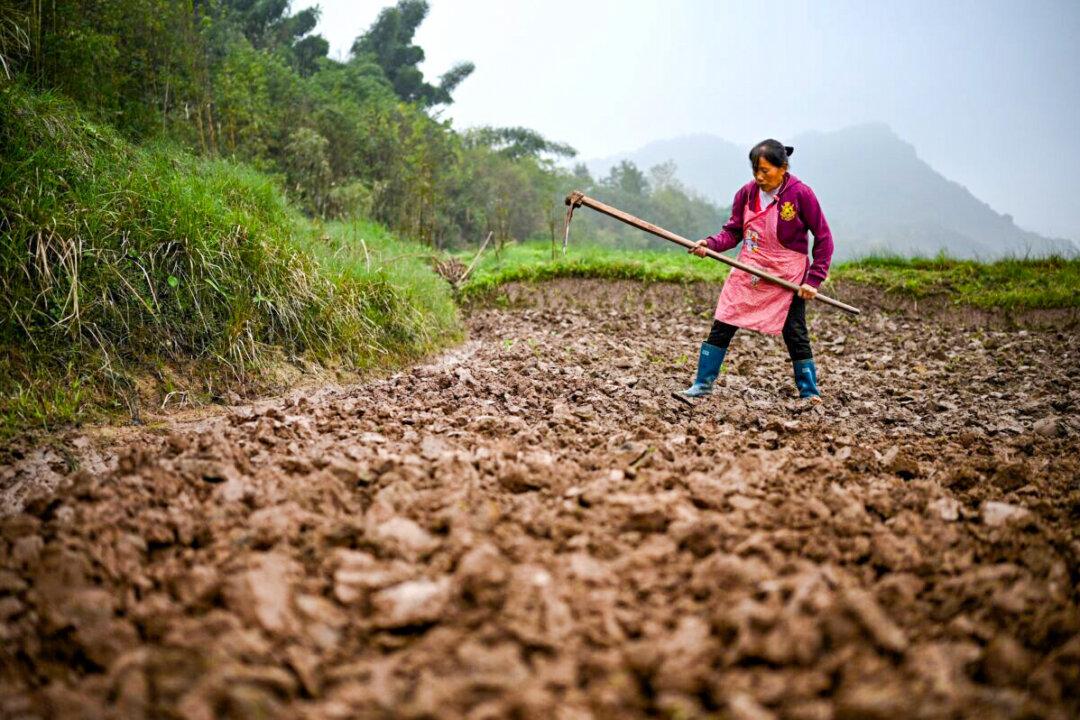A video circulated on China’s social media showed that local authorities in Weifang, Shandong Province, ordered peasants to “remove trees” to make the land available for grain production. This comes as many in China fear food shortages will soon become a serious problem.
In the video, a peasant, who recorded it as a selfie, said, “We just received a notice that we are required to cut down these trees and grow grains instead, even if financially it ends up being a loss. Commodity prices are so high nowadays—fertilizers, pesticides, and prices are ridiculously high.”





